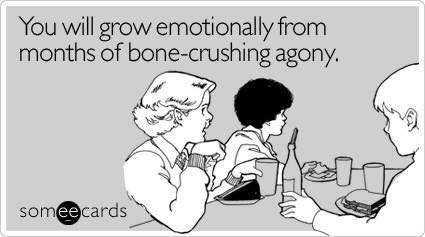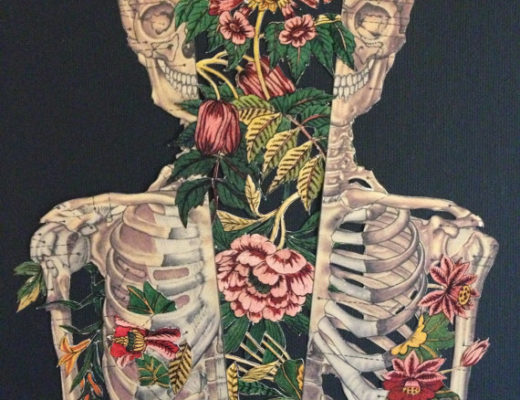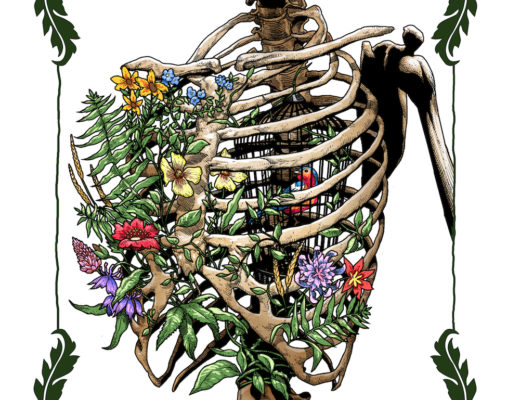This blog was originally hosted at Empty Cages Design.org as part of a series on Overcoming Burnout from 2016-2017. It has now been turned into a book that is available at: https://solidarityapothecary.org/overcomingburnout/
In this blog post about overcoming burnout, I have wanted to explore one of the drivers of workaholism – the productivity paradigm.
A long time ago, as these things happen, I had quite a strong attraction to someone I was organising with. Alas, it didn’t work out but I often reflect on one of the phrases in the text that communicated the rejection. That they didn’t want to lose me as a close friend or as a ‘campaign machine’. That in the end ‘the campaign won’. I ultimately had more value as an organiser than as a lover. The phrase ‘campaign machine’ has stayed with me, sat somewhere in my subconscious with a mixture of discomfort and skewed pride. While deflecting most compliments, I still secretly lapped up feedback like this – how “on it” I am, how likeable it is that I’m someone that just gets shit done; who “smashes it”. My happiness and self esteem ultimately related to how much, or preferably, how effectively, I was organising.
It is pretty clear that our alienated capitalist society holds the paradigm of productivity close to its heart. But how does this paradigm influence our behaviour as anti-capitalists?
Or those that work hard not to accumulate wealth, but to fight for social transformation, or ultimately, survival? How does someone like myself, who has tried to unlearn so many parts of our oppressive culture, still have such an ingrained and unrelenting protestant work ethic?
A Clock is a Lock
When I went to prison and couldn’t organise, it felt like a death knell for parts of my identity. Yet I soon learned how to sustain self-discipline and control through studying, exercise, and in less explicit ways, supporting and organising with other prisoners. I promised my self when I got out I wouldn’t ‘waste a second’, and this desire to not ‘waste time’ heavily influenced my choices of how to organise my life.
Prison makes you a bit obsessive and compulsive about time. Girls inside obsess about how much time they’ve done, how much time they have left, how much time in bang up, how they are going to spend their time when they get out, all the while wrestling with regrets of time spent. Tick tock tick tock, it doesn’t end. There is a Balkan proverb that says, “A clock is a lock.”
It was liberating in some ways; I certainly came out with a huge appreciation of my freedom and never wanting to take anyone or anything for granted ever again. However, I am almost certain it radically changed how I relate to time in my life that escalated and aggravated some of my basic personality traits and ‘bad’ workaholic habits cultivated through anarchist organising as a young adult. I left prison with heightened self-control, discipline, and a very real need to rebuild my self-worth through getting active again.
This was coupled with the necessity to block out traumatic experiences through working, and ultimately an intense sense of inner rage to confront the prison system when I was ‘free’. The repressive controlling relationship of time, its scarcity, and a fear of returning to prison meant I had to give all I had in case one day it was taken away again.
There was a worldview, ingrained in me from older organisers, that the abusers, oppressors etc. don’t stop – these systems are at it 24/7. That the people doing whatever (farming animals, testing on animals, running prisons etc.) are more successful because they are more organised. Organising then became brutally urgent and necessary (which it still is for sure).
At that time in my early political understandings of the world, I didn’t see that these systems of oppression were successful actually because of the millennia it had taken to lay the roots of domination and the development of repressive apparatuses, and that these people had a monopoly of violence. Instead my failure as an organiser to never do ‘enough’ became internalised and hyper individualised, resulting in the vigilant control of my own life to serve these resistance-orientated ends.
I have spent years perfecting my own system to ensure my continuing productivity – all variety of paper-based and digital systems to manage next actions, information, meetings, emails, goals – you name it, I had a system for it. My output escalated, and I took on more and more organising and responsibilities. The space I created for myself through being productive and focused didn’t remain clear for rest and relaxation, it instantly got filled with yet another campaign or project. For sure I would take time out with lovers and friends, but this was in as much about feeling human as it was, to serve and sustain my own output. Rest became functional, and the bare minimum at that.
With ‘downtime’ at a minimum, my anger and frustration at those that would ‘waste my time’ grew. The drunk punks, partygoers, travelling hippies or others that resist conforming to capitalism’s work ethic drove me nuts. If folks were late for meetings or to support at events, I could feel my teeth grind. The feeling of time-scarcity in my life was a very real feeling. I felt like inbetween prison visits, caring responsibilities, paid work and organising, time for myself, gardening, medicine making and for general rest and pleasure, was sacred, and those that affected that were a growing source of resentment, making it increasingly difficult to organise in a healthy way.
Productivity is King
Capitalism has a certain way of reproducing oppressive logics about our body and our actions. Productivity is king. Those who have mastered it are heroes. Those who are unproductive are lazy and worthless (hence another reason why class hatred is forever permeating into social policies). Yet we, the working class, never get to define what productivity means in our lives and complex contexts. And despite trying to unlearn lots of the oppressive bullshit society has fed me, I still am totally utterly dominated by a desire to be productive.
I thought to myself, this is ok because I want to be productive in struggle; I’m not learning to be productive to appease a boss. It is valuable to know how to get shit done quickly and efficiently. Yet in doing this uncritically, I have still been perpetuating this oppressive worldview that those that are productive have more worth and value.
The metrics still dominate – I’m actually measuring my recovery from burnout by how much stuff I’m getting done rather than how I’m feeling. It makes me nervous how so many resources relating to burnout define recovery in the context of productivity. The world wants you to get better so you can return to being productive. That you’ll be ‘kicking ass’ again soon. That you’re ‘no use’ to anyone unless you are well.
So to resist the urge to individualise, I ask, how can we be impactful in our movements, yet unlearn the productivity paradigm? How can we cultivate self esteem and self-worth beyond levels of output? Where is the balance between getting shit done and being effective, and being a slave to the clock? How can we integrate ‘timelessness’ into our lives, by connecting with each other and the land?
Capitalism discards so many of us because of the reduction in our economic labour power (even though people are intensely exploited in other ways) e.g. the old, sick, disabled, prisoners, mothers and so forth. Yet we continue to judge ourselves and others on our output.
Well, no more! I am not a machine. I’m going to love myself and others because we are complex, messy, fucked-up, beautiful, vulnerable human beings with inherent worth. I commit to returning to health, not to be productive, but to feel more alive, whole and human.
In the words of John Zerzan:
“Can we put an end to time? Its movement can be seen as the master and measure of a social existence that has become increasingly empty and technicized. Averse to all that is spontaneous and immediate, time more and more clearly reveals its bond with alienation. The scope of our project of renewal must include the entire length of this joint domination. Divided life will be replaced by the possibility of living completely and wholly– timelessly–only when we erase the primary causes of that division.” [1]
References
1. Time and its discontents, in Elements of Refusal, John Zerzan





No Comments